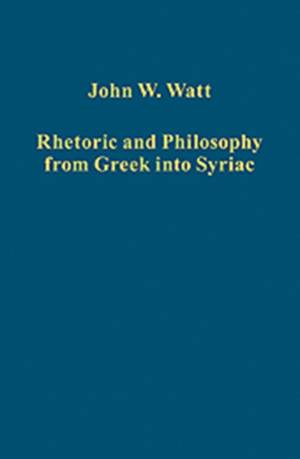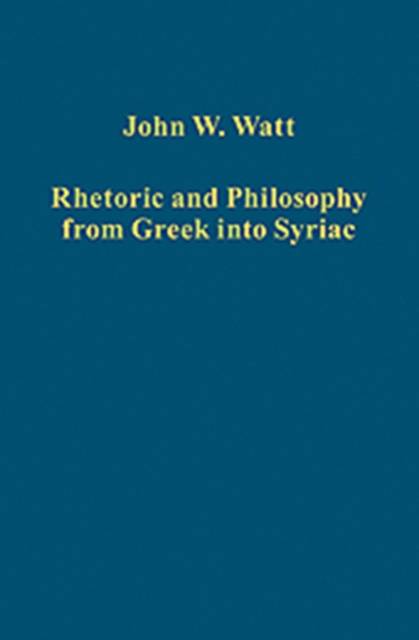
Door een staking bij bpost kan je online bestelling op dit moment iets langer onderweg zijn dan voorzien. Dringend iets nodig? Onze winkels ontvangen jou met open armen!
- Afhalen na 1 uur in een winkel met voorraad
- Gratis thuislevering in België vanaf € 30
- Ruim aanbod met 7 miljoen producten
Door een staking bij bpost kan je online bestelling op dit moment iets langer onderweg zijn dan voorzien. Dringend iets nodig? Onze winkels ontvangen jou met open armen!
- Afhalen na 1 uur in een winkel met voorraad
- Gratis thuislevering in België vanaf € 30
- Ruim aanbod met 7 miljoen producten
Zoeken
Omschrijving
Shortly after 500 CE, the Syriac-speaking priest and physician Sergius of Resh'aina, who had studied in Alexandria, wrote the first known exposition of Aristotle in a Semitic language. About four centuries later, Abu Bishr Matta, an alumnus of the monastic school of Dayr Qunna in Iraq, completed in Baghdad the Arabic version of the Aristotelian Organon with translations from the Syriac, and in a famous disputation argued the case for Greek logic as a theory of knowledge against rival claims of Arabic grammarians. The articles collected in this volume are concerned with the transmission and development of the Greek achievement among Syriac scholars of the Fertile Crescent during these four centuries, particularly in the fields of rhetoric and philosophy. Some range broadly over general areas, such as the Syriac appropriation of Greek liberal education or the educational curriculum in Syriac monastic schools, while others focus on themes of particular interest, including the influence of Aristotle's Rhetoric or the concept of the philosopher-king. Cumulatively they show how many aspects of Greek culture were received and elaborated in Syriac, and contribute to understanding the ways in which that culture exercised a powerful influence on the medieval Near East and the burgeoning Islamic civilisation.
Specificaties
Betrokkenen
- Auteur(s):
- Uitgeverij:
Inhoud
- Aantal bladzijden:
- 330
- Taal:
- Engels
- Reeks:
Eigenschappen
- Productcode (EAN):
- 9781409400202
- Verschijningsdatum:
- 28/08/2010
- Uitvoering:
- Hardcover
- Formaat:
- Genaaid
- Afmetingen:
- 149 mm x 224 mm
- Gewicht:
- 739 g

Alleen bij Standaard Boekhandel
+ 443 punten op je klantenkaart van Standaard Boekhandel
Beoordelingen
We publiceren alleen reviews die voldoen aan de voorwaarden voor reviews. Bekijk onze voorwaarden voor reviews.











